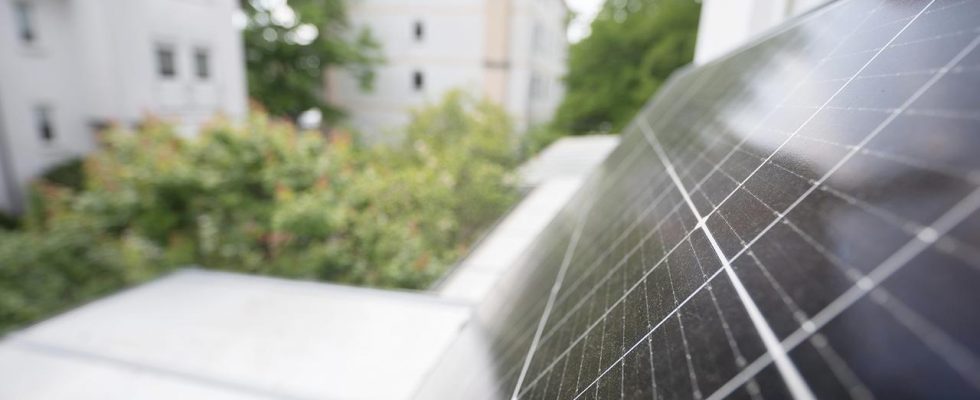Next year the CO2 price will rise more than planned, making heating and refueling more expensive. Economists warn that the tax is socially unfair. Climate money would help. But that will probably take some time.
More than 13 billion euros – that’s how much the German state earned last year from the CO2 tax on heating oil, gas and gasoline and from the European CO2 emissions trading for industry. Although these taxes are initially due to oil companies, electricity companies and industrial companies, citizens ultimately pay them through higher prices.
This money should actually flow back to the citizens in the form of climate money paid out per capita. This is what consumer advocates, social associations and climate protection organizations are currently calling for again. The federal government itself announced this in its coalition agreement two years ago.
From January onwards, the CO2 tax in Germany is set to rise again significantly: from the current 30 to 45 euros – this is what the federal government decided in mid-December as part of the new budget resolutions. As a result, petrol and diesel are likely to become several cents more expensive each, and the gas bill will increase by an average of around five euros per month.
Good for the climate – unfair distribution
Most economists also think climate money makes sense. As important as the CO2 price may be in terms of the climate, it is just as unfair in terms of its distributional impact. Poorer households cause less CO2 on average because they live in smaller apartments, go on vacation less often and consume less overall than richer households. At the same time, they spend a significantly larger proportion of their income on heating.
This is also confirmed by a new study by the Institute for Macroeconomics and Business Cycle Research (IMK) of the Hans Böckler Foundation. Climate money would “comprehensively relieve the burden on households in lower income groups and those with medium consumption,” write the researchers.
But it’s not just poorer households that are particularly affected by high CO2 prices, but also certain people in middle income classes – such as pensioners who live alone in older houses in the country and who “often have hardly any financial means to reduce emissions through renovation or replacing heating systems should,” as the IMK writes. They would need additional support beyond climate money.
The introduction of climate money is currently failing because of two things in particular: Firstly, the state would have to link the unique tax ID of every person in Germany with their account data – and this would be flawless in terms of data protection. The Ministry of Finance wanted to address this, but so far it has not yet managed to create the conditions for the payment. After all, according to the ministry, the mechanism should now “be available during this legislative period”.
Majority finds energy transition “unfair”
The second hurdle: The billions in CO2 revenues have long since been earmarked for other projects, including many climate measures. However, according to economics professor and economist Veronika Grimm, “the weakest in society would fall behind” – because, for example, they don’t own a house where they can have financially supported solar cells installed on the roof or a heat pump in the basement could.
The majority of Germans also perceive the implementation of the energy transition as unfair, according to the results of a recently published study by the Bertelsmann Foundation in collaboration with the Research Center for Sustainability – Helmholtz Center Potsdam.
The Grimm economist believes the introduction of climate money is essential “in order to get climate policy accepted,” she said ARD. She believes the organizational and data protection problems can be solved. And as long as the Ministry of Finance is still working on it, the climate money can be saved and then collected and paid out later. This would mean that the traffic light coalition would actually have an incentive to move forward and make the payment possible, “for example shortly before the next federal election in 2025”.

